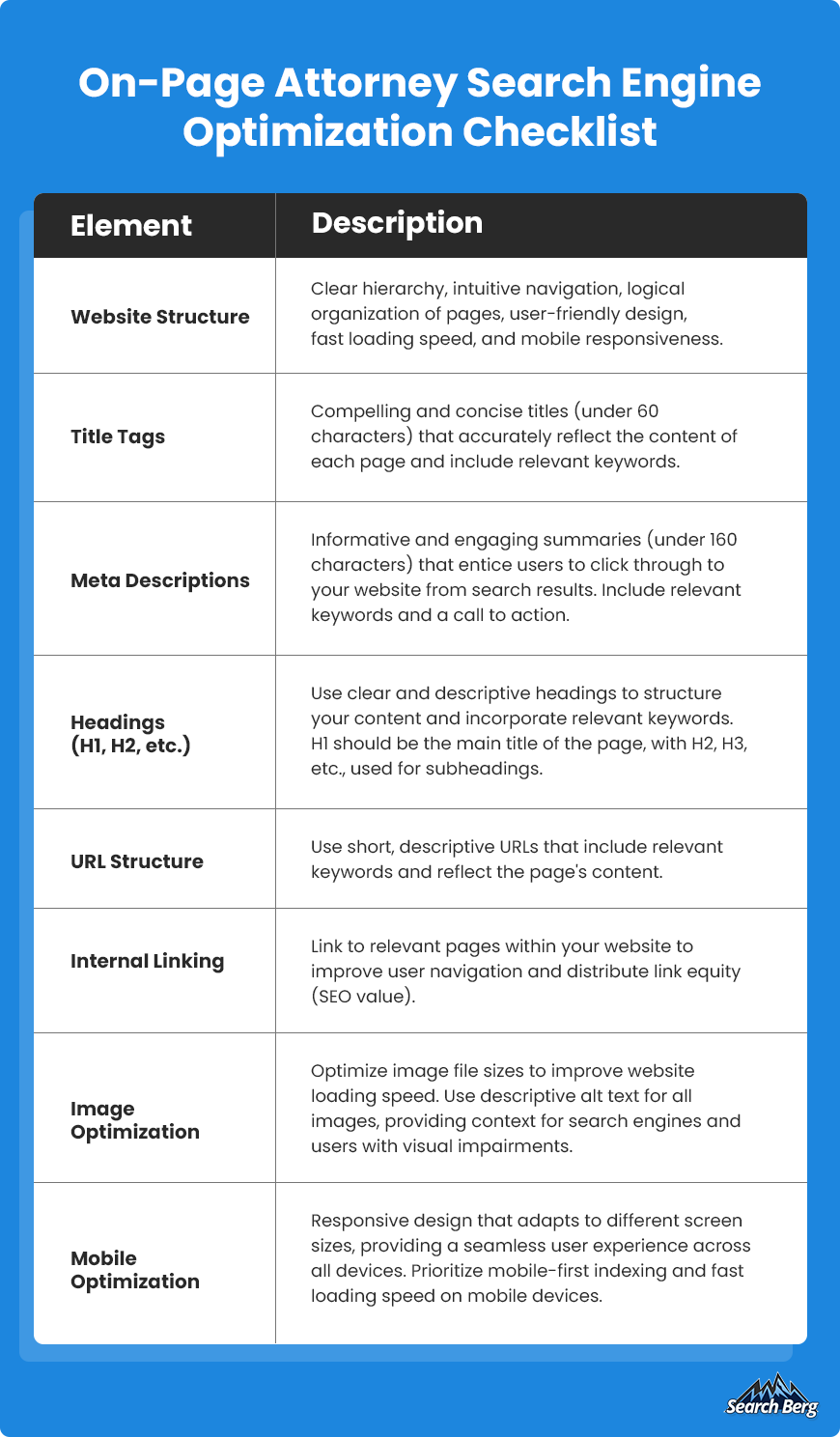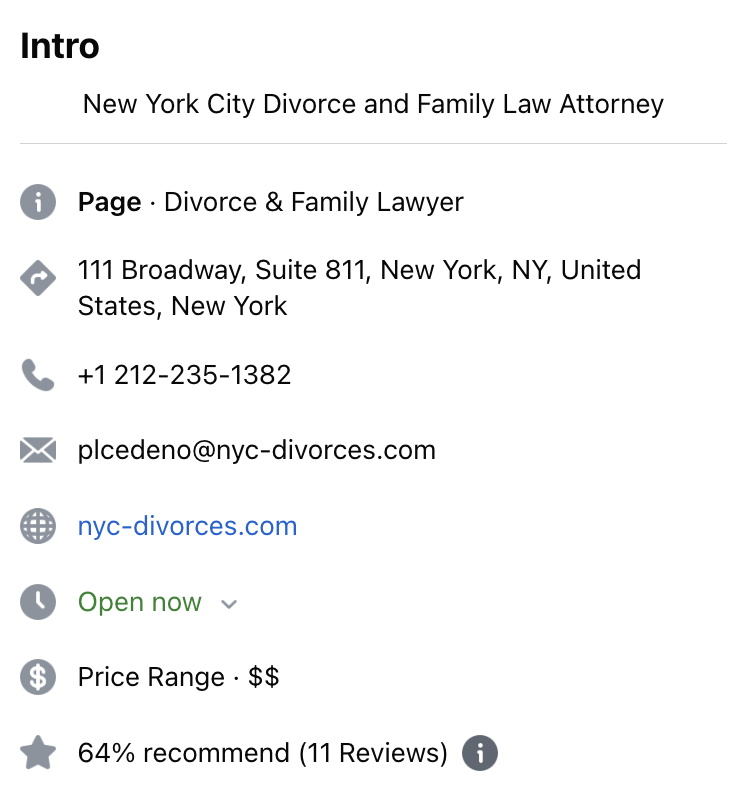How to Rank My Law Firm Website on Google
Your law firm’s website is failing.
Not catastrophically, perhaps. But if it’s not ranking on the first page of Google for relevant searches, it’s failing to connect with potential clients who need your services right now.
This blog is your guide to turning that failure into a resounding success.We’ll demystify the art and science of law firm SEO, revealing the strategies that successful firms use to attract clients, build authority, and achieve lasting online visibility. We’ll also highlight the importance of a smart attorney SEO service plan.
Let’s begin!
1. Know Your Audience (and What They’re Searching For)

Before you start tweaking your law firm website or crafting clever content, you need to understand who you’re trying to reach and what they’re looking for. This is where keyword research comes into play.
Think of keywords as the bridges connecting your law firm to potential clients. They’re the words and phrases people type into Google when searching for legal services. By identifying the right keywords, you can ensure your website appears in the search results when those searches happen.
How can you conduct effective keyword research?
- Brainstorm: Start by listing the types of legal services you offer. Then, put yourself in your ideal client’s shoes. What words would they use to search for those services?
Example: If you specialize in personal injury law, your list may include: “personal injury lawyer,” “car accident attorney,” “slip and fall lawyer,” “wrongful death attorney,” etc.
- Use Keyword Research Tools: Several tools can help you expand your keyword list and identify high-volume, low-competition keywords. At Search Berg, we use our own in-house keyword research tool.
- Analyze Search Intent :It’s not enough to know what people are searching for; you also need to understand why. Are they looking for information, legal advice, or a specific type of lawyer?
Example: Someone searching for “how to file a personal injury claim” might be looking for information, while someone searching for “best personal injury lawyer near me” is likely ready to hire an attorney.
- Consider Location: For law firms, local SEO is imperative. Always include location-based keywords in your research.
Example: Instead of just “personal injury lawyer,” target “personal injury lawyer in [your city]” or “car accident attorney in [your state].”
Pro Tip: Don’t just focus on high-volume keywords. Long-tail keywords (longer, more specific phrases) often have lower competition and can be highly effective in attracting qualified leads.Instead of “divorce lawyer,” target “divorce lawyer for high net worth individuals in [your city].”
By understanding your audience and their search intent, you can lay the foundation for a successful SEO strategy that drives targeted traffic to your legal website.
Recommended Read: How to Maximize Local SEO for Lawyers
2. On-Page Optimization
You’ve identified your target audience and the keywords they’re using. Now it’s time to optimize your website to ensure Google understands your law firm and why it deserves a top spot in the search results.
Here’s a breakdown of key on-page search engine optimization tactics:
- Website Structure and Navigation
- Clear Hierarchy: Organize your website with a logical hierarchy, making it easy for visitors (and Google) to understand your services and find the information they need.
- Example:Home Page > Practice Areas > Personal Injury > Car Accidents
- Intuitive Navigation: Use clear and concise menu labels, breadcrumbs, and internal links to guide users through your website.
- User Experience (UX): Prioritize a positive user experience. Ensure your website is fast-loading, mobile-friendly, and easy to navigate on all devices.
- Title Tags and Meta Descriptions
These HTML elements provide concise summaries of your web pages to search engines and users.
- Title Tags: Craft engaging title tags (under 60 characters) that accurately reflect the content of each page and include relevant keywords.
- Example: “Car Accident Lawyer in [Your City] | [Your Firm Name]”
- Meta Descriptions: Write informative and engaging meta descriptions (under 160 characters) that entice users to click through to your website.
- Example: “Experienced car accident lawyers in [Your City]. We fight for maximum compensation. Free consultation: [Phone Number]”
- Mobile Optimization
In today’s mobile-first world, ensuring your legal website is optimized for mobile devices is non-negotiable.
- Responsive Design: Use a responsive design that adapts to different screen sizes, providing a seamless user experience across all devices.
- Mobile-First Indexing: Google primarily uses the mobile version of your website for indexing and ranking. Make sure it’s flawless.
- Page Speed: Optimize your website’s loading speed on mobile devices to improve user experience and search rankings.
- Image Optimization
Images enhance the visual appeal of your website, but they can also contribute to your SEO efforts if optimized correctly.
- Alt Text: Use descriptive alt text for all images, providing context for search engines and users with visual impairments.
- Example: Instead of “image.jpg,” use “car accident lawyer [your city].”
- File Size:Optimize image file sizes to improve website loading speed.
Pro Tip: Use a tool like Google’s PageSpeed Insights to analyze your website’s performance and identify areas for improvement. For professional on-page SEO, work with a lawyer SEO company that can take the reins for you.

3. Link Building
In the eyes of Google, backlinks (links from other websites to yours) are like votes of confidence. The more high-quality backlinks you have, the more authoritative your website appears.
But all backlinks aren’t the same. Focus on earning links from reputable websites in the legal industry, e.g.:
- Legal directories (e.g., Avvo, FindLaw, Justia)
- Legal associations and organizations
- Law schools and universities
- News websites and blogs
- Local business directories
How can you build backlinks in 2025?
- Guest Blogging
Guest blogging involves writing high-quality articles for other legal blogs and publications. It’s a win-win strategy: you get to share your expertise with a wider audience, and the host website gets valuable content. Most importantly, you earn a valuable backlink to your website.
When guest blogging, focus on contributing insightful, well-researched articles that provide genuine value to the reader. Choose websites that are relevant to your practice areas and have a strong readership.
Recommended Read: Guest Blogging Goldmine for Lawyers: Expand Your Reach
- Strategic Outreach
Don’t be afraid to reach out to website owners and editors in the legal industry to suggest your website as a resource. But before you do, make sure your website offers something truly valuable and relevant to its audience.
Personalize your outreach emails, highlighting the specific benefits of linking to your website. For example, if you’ve created an in-depth guide on estate planning, you may reach out to websites that offer financial planning services.
- Engaging in Online Communities
Participating in online forums, legal communities, and discussion groups can be an effective way to build your reputation and earn backlinks. Engage in thoughtful discussions, share your expertise, and provide helpful answers to legal questions.
When appropriate, include links to relevant resources on your website. However, avoid spamming forums with irrelevant links. Focus on building genuine connections and providing value to the community.
- Harnessing the Power of Local Citations
For law firms, local citations (mentions of your business name, address, and phone number on other websites) are essential for both local SEO and link building.
Ensure your NAP information is consistent across all online platforms, including your website, social media profiles, and online directories.Claim your Google Business Profile (GBP) listing and optimize it with relevant information, photos, and client reviews. Submit your law firm to relevant local business directories and industry-specific directories.
4. Content Marketing
Content marketing and law firm SEO work hand-in-hand to improve your website’s online visibility and attract clients. By creating high-quality, keyword-optimized content that addresses your target audience’s needs, you can improve your website’s search engine rankings, attract organic traffic, and establish your firm as a trusted resource in the legal field.
Effective content marketing strategies for law firms include:
- Blogging

A regularly updated blog is the foundation of effective content marketing for lawyers. It’s a platform to share your legal insights, provide commentary on recent developments, and offer practical advice to potential clients.
By consistently publishing high-quality blog posts, you can attract visitors to your website, keep them engaged, and demonstrate your deep understanding of the legal arena. A blog allows you to explore specific legal topics, answer common questions, and provide valuable information that establishes your firm as a knowledgeable and reliable resource.
When creating blog content, focus on topics that are relevant to your target audience and align with your practice areas. Address common legal questions, provide in-depth analyses of complex legal issues, and offer practical tips that readers can implement in their own lives.
Don’t be afraid to showcase your personality and writing style to create a connection with your audience. A well-written blog post can not only attract potential clients but also earn backlinks from other websites, further boosting your law firm’s SEO efforts.
- Video Marketing
Video content is a powerful tool for engaging your audience and conveying complex legal information in an accessible format.
Consider creating explainer videos that break down legal concepts in plain language, client testimonial videos that showcase your successes and build trust, or even interviews with legal experts to provide valuable insights and perspectives.
Video content can be shared across various platforms, including your website, social media channels, and even YouTube. It can also be embedded within your blog posts and website pages to enhance engagement and provide a more dynamic user experience.
Don’t forget the importance of video SEO for lawyers. To maximize the visibility of your videos, optimize them with relevant keywords, engaging titles, and informative descriptions. Use eye-catching thumbnails to encourage clicks, and add captions or transcripts to improve accessibility and engagement. Consider creating a dedicated YouTube channel for your law firm to organize your videos and build a following.
Recommended Read: Why You Need Video Content for Your Website If You Want to Gain New Customers
- Creating In-Depth Resources
Offering in-depth resources, e.g., eBooks, guides, and white papers, can be an effective way to capture leads and provide valuable information to potential clients. These resources allow you to dive deeper into specific legal topics in a way that blog posts or website pages may not allow.
Promote your eBooks and guides through your website, social media channels, and email marketing campaigns. Consider offering them as free downloads in exchange for contact information. This is an excellent way to nurture leads and build relationships with potential clients.
In-depth resources can also serve as valuable link magnets, attracting backlinks from other websites and boosting your website’s authority.
- Hosting Webinars and Online Events
Webinars and online events provide an opportunity to engage with your audience in real-time, share your expertise, and answer questions directly. These interactive events can help you build relationships with potential clients, establish your authority, and generate leads in a more engaging and personal way than static content.
Promote your webinars through your website, social media channels, and email marketing. Record your webinars and make them available on-demand to extend their reach and provide valuable content for those who couldn’t attend live. This creates a library of evergreen content that can continue to attract visitors and generate leads over time.
Webinars and online events can be a valuable tool for law firm SEO. By optimizing your webinar titles, descriptions, and promotional materials with relevant keywords, you can improve your website’s visibility in search results and attract potential clients who are actively searching for information related to your practice areas.
For example, if your law firm specializes in estate planning, consider hosting a webinar on “Estate Planning Essentials for Seniors” and optimize the webinar landing page with keywords like “estate planning lawyer,” “wills and trusts,” and “probate.”
By promoting your webinars through social media and email marketing, you can also generate backlinks to your website, further improving your search engine rankings. Additionally, webinars can be repurposed into other forms of content, e.g., blog posts, articles, and social media updates, providing even more opportunities to engage your audience and improve your online visibility.
5. Social Media Marketing
While the algorithms of social media platforms like Facebook, X (formerly known as Twitter), and LinkedIn may not directly influence your Google rankings, a robust social media presence can significantly contribute to your overall online visibility and brand awareness.
Think of social media as a powerful megaphone that amplifies your law firm’s voice, reaching potential clients who might not otherwise discover you through traditional search engine results.
For lawyers, social media marketing offers a unique opportunity to:
- Connect with Potential Clients: Social media platforms provide a direct line of communication with your target audience. By sharing valuable content, engaging in discussions, and responding to inquiries, you can build relationships with potential clients and establish your firm as a trusted resource.
- Showcase Your Expertise: Share insightful articles, legal updates, case studies, and other content that demonstrates your knowledge and experience. Position yourself as a thought leader in your field, attracting clients who are seeking authoritative legal guidance.
- Humanize Your Brand: Social media allows you to showcase the personality behind your law firm. Share behind-the-scenes glimpses of your team, highlight your firm’s culture, and participate in relevant conversations to build a personal connection with your audience.
- Drive Traffic to Your Website: Include links to your website in your social media posts and profiles, encouraging visitors to explore your services, read your blog, and learn more about your firm.
How to Create a Winning Social Media Strategy for Lawyers
To effectively leverage social media for your law firm’s SEO and overall online presence, consider these key strategies:
- Develop a Content Calendar: Plan and schedule your social media content in advance to ensure consistency and relevance. Share a mix of informative articles, engaging visuals, and interactive posts to keep your audience interested.
- Optimize Your Profiles: Ensure your social media profiles are complete and up-to-date, including relevant keywords, compelling descriptions, and high-quality images.
Here’s a great example of a complete, keyword-friendly introduction on Facebook:

- Engage with Your Audience: Respond to comments, answer questions, and participate in discussions to build relationships with your followers.
- Track Your Results: Monitor your social media analytics to track your progress, identify what’s working, and adjust your strategy accordingly.
While social media encourages a more relaxed and conversational style, it’s important to maintain a professional tone that aligns with your law firm’s brand and values. Be mindful of client confidentiality and avoid sharing sensitive information or discussing ongoing cases. Focus on providing valuable insights, sharing informative content, and engaging with your audience in a respectful and professional manner.
If you’re struggling to kick-start your campaign, turn to law firm SEO experts who specialize in social media marketing. The right assistance can give you the online boost, visibility, and growth you deserve.
6. Schema Markup
Say you’re trying to explain a complex legal concept to someone unfamiliar with the law. You could use technical jargon and intricate legal language, but that may leave them confused and disoriented. Or, you could use clear, concise language, relatable examples, and visual aids to help them understand.
Schema markup is like the second approach, but instead of explaining things to a client, you’re explaining your website to Google.
Schema markup is a type of code that helps search engines understand the content on your website. It’s like providing Google with a detailed roadmap of your website, highlighting the most important information and making it easier for search engines to interpret and categorize your content.
By adding schema markup to your web pages, you can provide Google with specific information about your law firm, e.g., your address, phone number, services offered, client reviews, and more.
For law firms, schema markup can be a powerful tool for improving visibility in search results and attracting potential clients.
Here’s how:
- Enhanced Search Results: Schema markup can help your website stand out in search results by providing additional information, e.g., star ratings, reviews, and location details. These enhanced search results, known as rich snippets, can attract more clicks and improve your click-through rate (CTR).
- Improved Search Engine Understanding: By providing explicit information about your law firm and its services, schema markup helps search engines understand your website’s content more accurately. This can lead to better rankings for relevant searches and improved visibility for your target audience.
- Increased Local Visibility: For law firms that rely on local clients, schema markup can be particularly beneficial. By providing detailed information about your location, contact details, and operating hours, you can improve your visibility in local search results and attract clients in your area.
- Enhanced Brand Credibility: Schema markup can help build trust and credibility with potential clients by displaying positive reviews and testimonials directly in search results. This social proof can influence potential clients’ decisions and encourage them to choose your firm over competitors.
Relevant Schema Markup Types for Law Firms
Several types of schema markup are particularly relevant for law firms.
Here are a few examples:
- LocalBusiness: This schema type provides detailed information about your law firm’s location, contact details, operating hours, and more. It helps search engines understand your business and display it accurately in local search results.
- LegalService: This schema type specifies the types of legal services your firm offers, such as family law, criminal defense, or personal injury. It helps search engines categorize your website and match it with relevant searches.
- Review: This schema type allows you to highlight client testimonials and ratings directly in search results. Positive reviews can build trust with potential clients and encourage them to choose your firm.
Implementing schema markup may seem tricky if you’re not familiar with code, but there are several tools and resources available to simplify the process.
Google’s Structured Data Markup Helper can guide you through the process of adding schema markup to your web pages. You can also use plugins and extensions for popular content management systems like WordPress to easily implement schema markup without writing any code.
Once you’ve added schema markup to your website, use Google’s Rich Results Test to ensure it’s implemented correctly, and your pages are eligible for rich snippets in search results.
By embracing schema markup as part of your law firm’s SEO strategy, you can enhance your visibility in search results, attract more potential clients, and establish your firm as a trusted and authoritative source of legal expertise.
It’s Time to Put in the Work!
Ranking your law firm’s website on Google is an ongoing process that requires a strategic approach and consistent effort.
Remember: SEO is not a magic bullet. It’s a long-term investment that requires patience, dedication, and a willingness to adapt to the ever-changing digital jungle. But with the right approach, the rewards can be substantial.
At Search Berg, we specialize in providing expert SEO services for lawyers. We develop tailored law firm SEO marketing strategies to help you achieve higher rankings, attract more clients, and establish a dominant online presence.
We also provide ongoing analytics and reporting to track your progress and ensure your SEO strategy is delivering results.
Don’t let your law firm get lost in the digital maze. Contact Search Berg today for a free consultation and discover how our SEO services for lawyers can help you achieve online success.
It's Time to Get Seen by Your Audience
Launch a power-packed law firm SEO game plan to attract the attention you deserve. Get more calls, work with more clients, and close more cases in 2025. Let’s start with a free lawyer SEO marketing consultation!
No spam, just expert advice!












